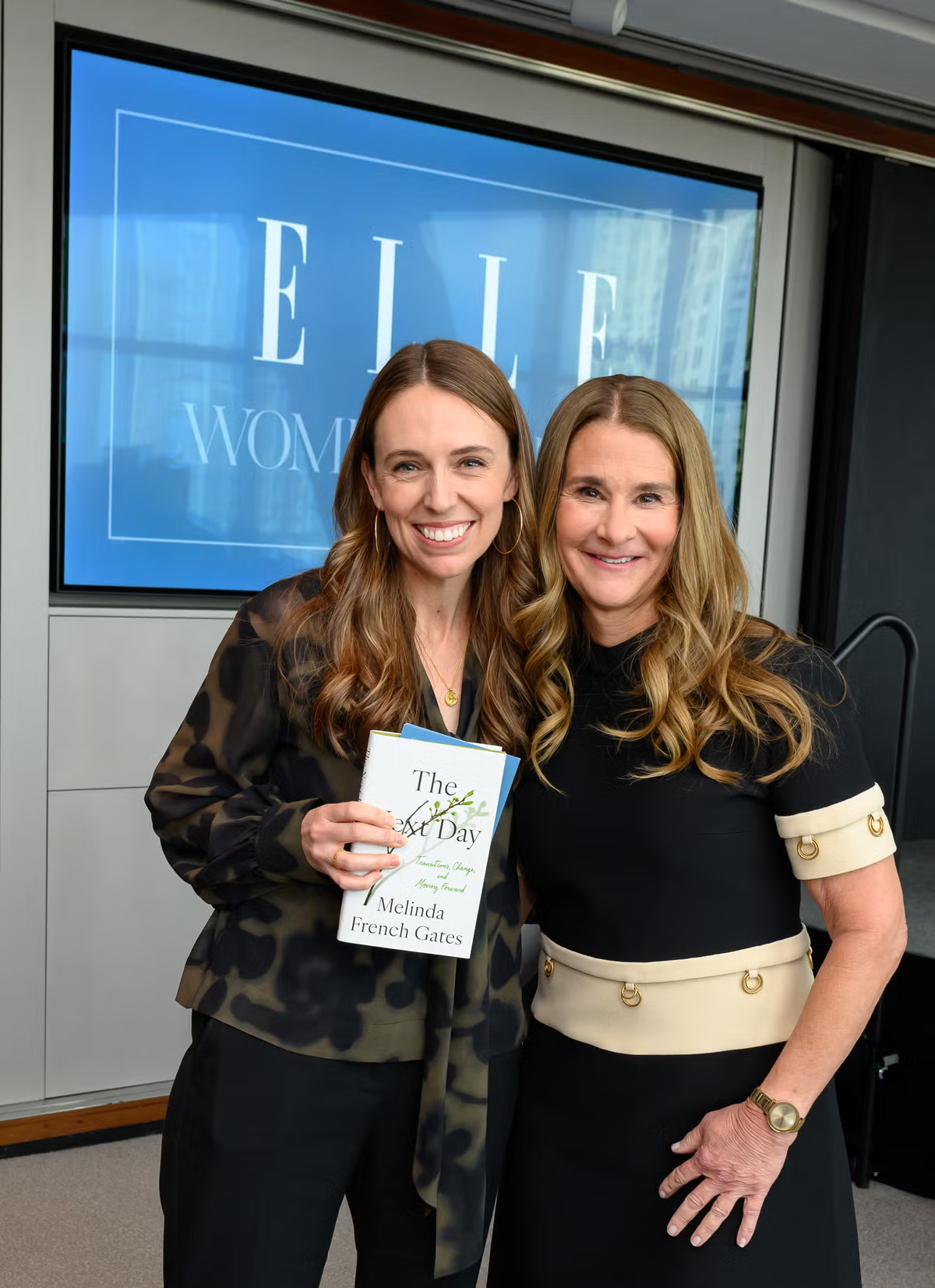When Melinda French Gates launched her new book, *The Next Day: Transitions, Change, and Moving Forward*, she marked the moment by joining former New Zealand Prime Minister Jacinda Ardern at ELLE’s Women of Impact event in New York. In front of a room filled with influential women, they shared an honest and powerful conversation about leadership, empathy, friendship, and navigating life’s biggest shifts. Introduced as women who embody both strength and grace, they represented exactly the kind of leadership the event aimed to celebrate.
Their dialogue explored how authentic female relationships can offer a unique kind of courage. Melinda described how her closest female friendships have helped her name and face hard truths—first privately, and eventually in the public sphere. This kind of quiet strength, she explained, becomes the root of greater collective courage. For Jacinda, leadership must evolve to include empathy, generosity, and curiosity alongside drive and competence. She argued that we often focus on diversity in demographics without equally valuing diversity in leadership style. She challenged the idea that good leadership must be aggressive, noting that the values we teach our children—kindness, fairness, wonder—are also what the world most needs in its leaders.
Melinda agreed, emphasizing that kindness isn’t weakness—it’s powerful in action. She shared her admiration for both women and men who lead with compassion, noting that these qualities should be honored and amplified. She stressed that women telling their stories—of ambition, vulnerability, and perseverance—has the power to reshape public understanding of what leadership looks like.
The conversation also touched on the internal conflict women often face between societal expectations and personal ambition. Melinda reflected on the challenge of being encouraged to be both kind and driven, while often being told she was “too much” when she leaned fully into either. She said her journey toward clarity required slowing down and tuning into her own voice, even when it meant making difficult decisions—like ending her marriage—to stay true to herself.
They discussed boundaries, too, particularly the difficulty of balancing overlapping roles. Melinda shared a vivid memory from early motherhood, when she was too exhausted after work to read to her daughter. It became a turning point that taught her the importance of recharging before stepping into her role at home. Jacinda echoed that experience, encouraging women to offer themselves the same grace they extend to others, especially when juggling public life and personal responsibility.
Faith and service were central themes in their upbringing. Jacinda spoke of growing up in a religious household that emphasized kindness and civic duty. Though she left the church in her twenties, those values remain deeply ingrained. Melinda recalled being taught the importance of giving, even from small allowances, and how those early lessons shaped her belief that service should be both personal and systemic. She made it clear that while she doesn’t want to be consumed by service, she is fully committed to giving well and giving intentionally.
Since stepping down from her role as co-chair of the Gates Foundation, Melinda has committed over a billion dollars through her own philanthropic efforts to causes that uplift women—ranging from reproductive health and leadership to global access to education and economic opportunity. She spoke of her desire to channel funds through women changemakers, trusting them to make decisions about where resources are most needed. Jacinda, one of those changemakers, shared her surprise and deep gratitude when Melinda gave her the authority to direct funding toward women-led initiatives. It was a gesture that Jacinda called a profound show of trust and belief in diverse leadership.
Their conversation made clear that leadership rooted in empathy can drive lasting change. Jacinda’s decision to step down as prime minister was, in itself, an act of leadership—a recognition that impact isn’t only tied to titles. Melinda’s approach to philanthropy, now grounded in flexibility and mutual trust, reflects a new era of giving: bold, informed, and collaborative. They both champion a model that values listening as much as leading, and that measures success not only in results but in relationships and resilience.
For women everywhere—whether leading in their homes, workplaces, or communities—the conversation offered powerful validation. Ambition doesn’t have to come at the cost of kindness. Boundaries are essential, not selfish. Leadership can be both warm and effective. Investing in women multiplies impact across generations. And true change comes not just from grand gestures, but from meaningful, consistent relationships built on trust and shared purpose.
Ultimately, their dialogue underscored a simple but powerful truth: the most enduring leadership comes from those who lead with empathy, curiosity, and courage. In Melinda and Jacinda’s stories, women found a roadmap for leadership that uplifts not only individuals, but entire communities. Together, they showed what it looks like to lead with heart—and to leave behind a legacy shaped by compassion, not control.







